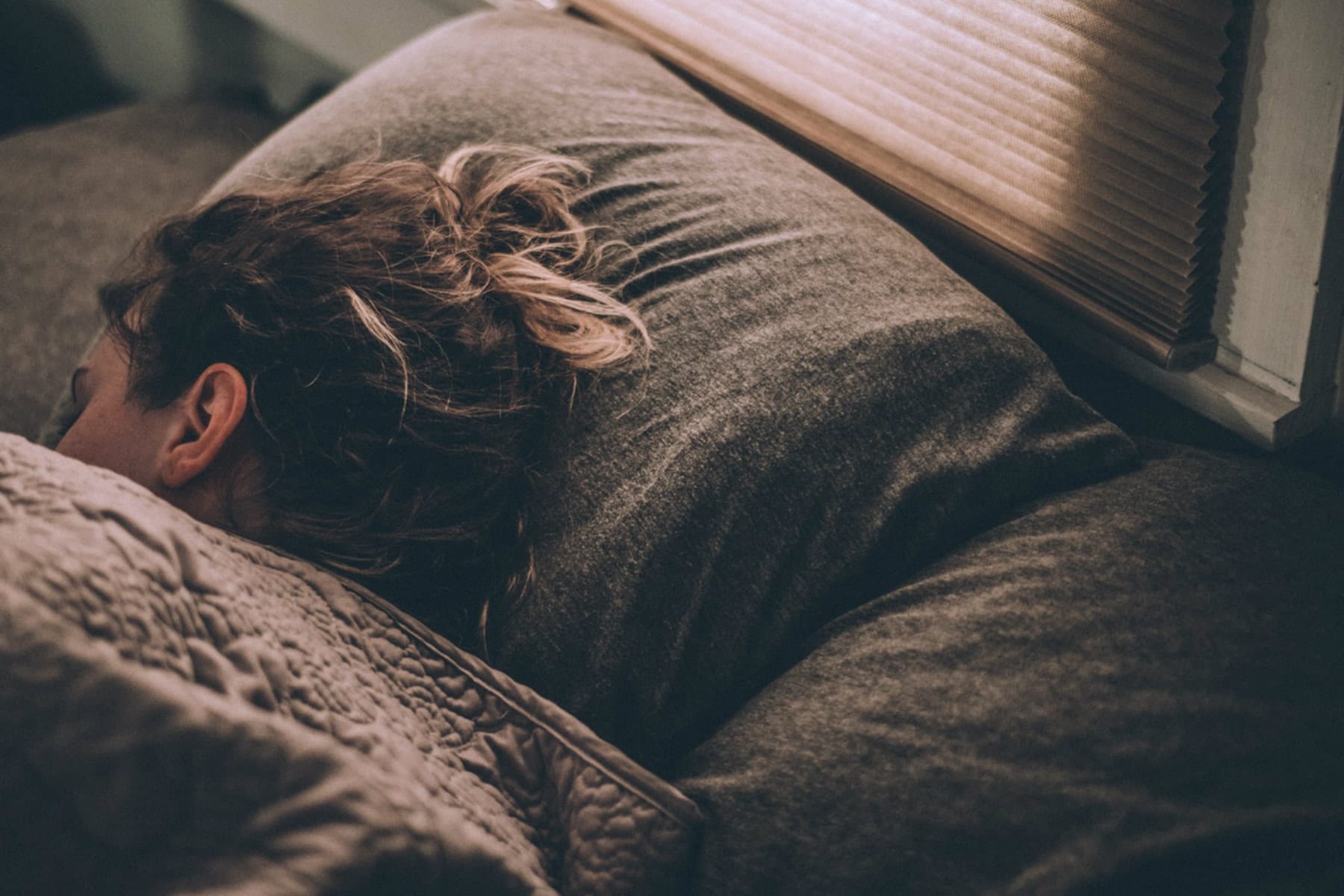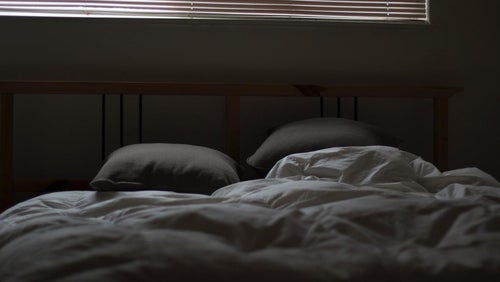
Are you having a restless night’s sleep? Have you noticed that your regular sleep pattern has changed?
You may be sleeping more than normal. Perhaps you’re sleeping less.
It’s fair to say that, for now, life has changed significantly. This is especially true when it comes to your normal daily routine and how you go about life.
Your everyday commute to work, mealtimes, how much time you spend outdoors, and your contact with your family are just a few examples of how life is different right now because of self-isolation and social distancing.
Not only do these modifications change your everyday life, they’re also impacting your natural circadian rhythm, which is your body’s internal “clock” that helps regulate your sleep pattern.
Here’s some reasons you might be struggling to sleep right now:

Your body clock is out of wack
Your inner “clock” is also responsible for controlling both your body’s temperature and hormones, which are two essential factors that help you remain alert throughout the day and make you tired at night.
There are two influencing forces that help align your body’s circadian rhythm — regular mealtimes and exposure to natural light. But it’s highly possible that quarantine and social distancing have changed this for you, especially when it comes to spending time outside.
Increased stress levels
Having trouble falling asleep at night or waking up numerous times throughout the course of the night is a normal thing when people are feeling uncertain or worried.
As a result, your stress levels increase, which increases your stress hormone production. This is responsible for regulating your sleep-wake cycle.
In the evening, your cortisol levels should normally drop — they reach their lowest point at around midnight. However, if your levels are up prior to going to bed, it’s likely this is one factor that’s disrupting your sleep.
When you lack sleep, which is often referred to as “sleep debt”, it can affect you both mentally and physically, leaving you fatigued. Sleep deprivation will slowly but surely affect your performance, alertness, memory, and immunity.
Here are some ways to help improve your sleep quality during lockdown and beyond:
Create a new routine
It could be that you’re working from home remotely for the first time. Perhaps you’ve unexpectedly been furloughed. Maybe you’re playing “teacher” as you homeschool your kids. Whatever situation you’ve found yourself in — routine is important for your body.
Establishing a routine will be the key to getting your natural circadian rhythm back on track.
Firstly, look at your sleep-wake cycle. When you feel tired, go to bed, and try waking up in the morning without the help of an alarm.
In the beginning, you may find yourself sleeping slightly more than you normally would, but after a week or two, you’ll discover that you soon return to your natural sleep duration and pattern.
Avoid working in your bedroom (when possible)
When it comes to going to bed, it’s good practice to remove all electronic devices. It’s also important to create a good sleeping environment that is cool, dark, and quiet.
Your bedroom is a place for sleeping – this is what you should associate it with. It’s not a place for watching TV and it’s not a place for working on your laptop.
Removing electronic devices, which emit artificial light that negatively influences your sleep cycle, will ultimately help you relax more and get you ready for sleep.
And if you’re wondering why artificial light is so bad, it’s because it tricks your body’s circadian clock into believing that daylight has been extended and as a result, it affects your sleep quality.
Avoid napping
If you’re a power napping fan, now’s the time to try and knock this habit on the head (for now anyway). When you try to create your new routine, it’s essential you try and engage with your body’s natural circadian rhythm as much as possible and napping throughout the day may disrupt this in the beginning.
Stop drinking caffeine after midday
Coffee, tea, and coke — they all contain caffeine, which can also negatively affect sleep. While we all respond to caffeine in different ways, there’s one thing for sure — it’s a stimulant, which can impact sleep quality.
So, while you’re trying to get your sleep pattern back to normal, avoid drinking any caffeinated drinks after midday.
Exercise
Doing aerobic exercise and resistance training positively affects sleep, however, the timing of your exercise is very important. Avoid doing any kind of forceful exercise prior to going to bed, as exercise awakes your happy hormones and acts as a stimulant, which could in turn make it more difficult to fall asleep.
Look at your bedtime routine
These days, lockdown or no lockdown, looking at screens is a habit, especially right before bed – this is the new norm when it comes to winding down.
At least one hour prior to going to bed, stop your screen time; this includes TVs, computers, and phones. Instead find a different way to relax, such as meditating, reading or journaling.
When you do this, you’ll help improve your natural circadian rhythm, as your body will begin to release sleep-promoting hormones that reduce alertness.
Take home message
We may have been given a slight glimpse into the future of what life will look like after quarantine, but for many there’s still a sense of fear and uncertainty, which is only heightened when you suffer from sleep deprivation.
Establishing and looking after your sleep pattern right now will help reduce fatigue and stress. It won’t fix the world’s problems, but it will make you a little bit more productive and calmer — and right now, this is what’s important.
READ THIS NEXT:

5 Ways To Get A Better Night's Sleep
No longer will you be counting sheep with these 5 great tips....

3 Manuka Honey Benefits You Should Know About
This sweet stuff might just surprise you....








